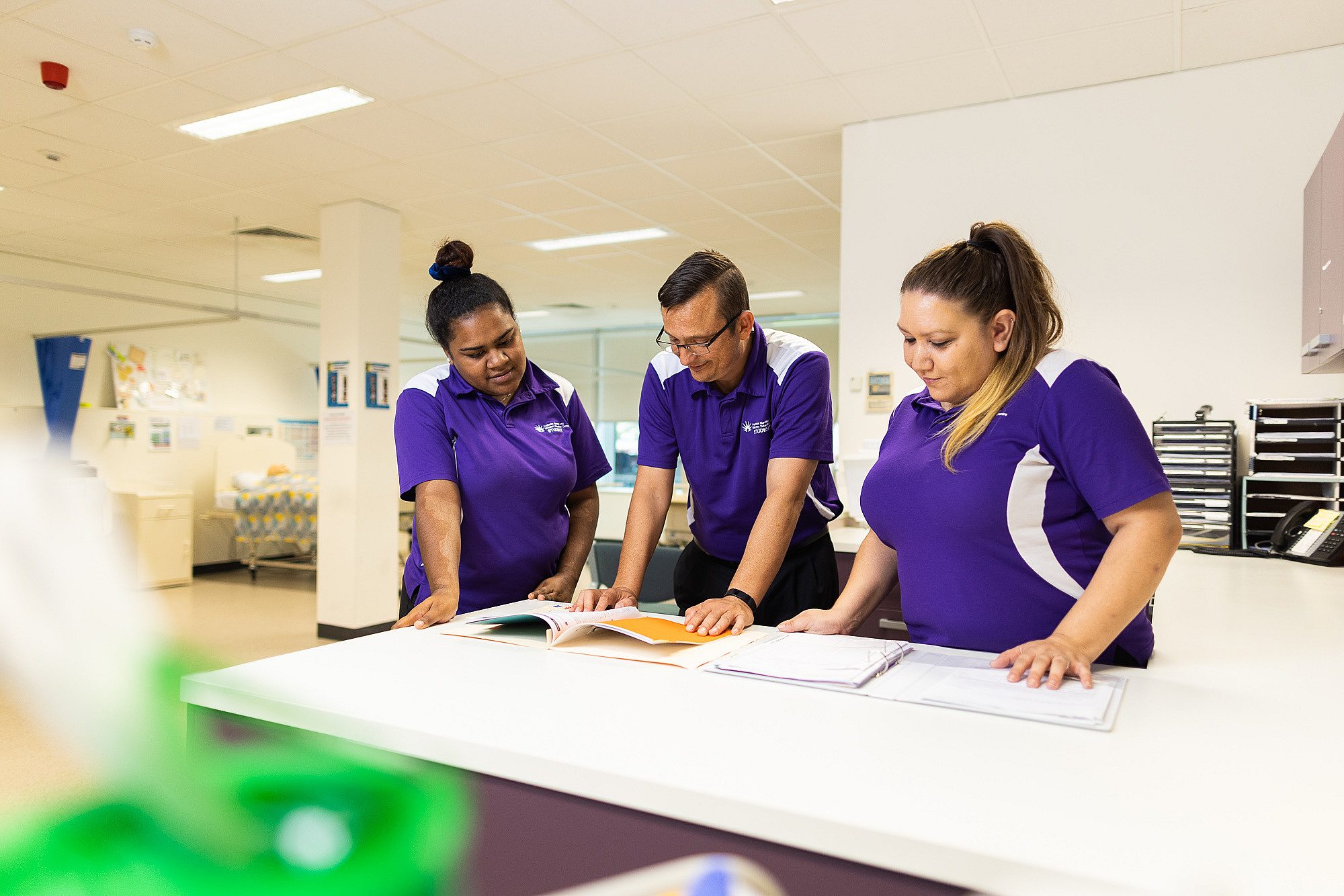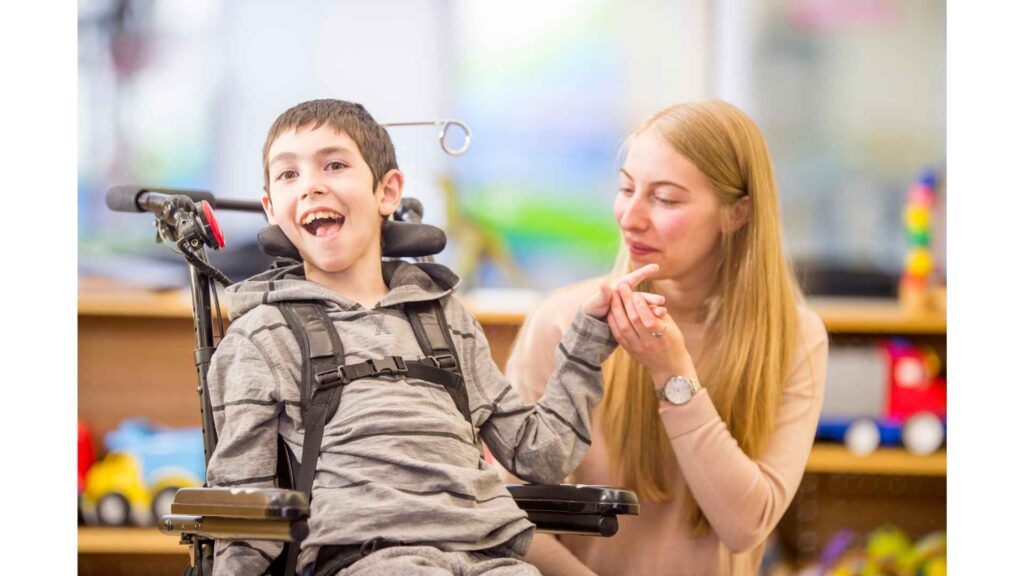The Essential Link Between Special Needs Providers and Effective Home Treatment Solutions
The connection between impairment services and home treatment remedies is essential for boosting the lives of people with impairments. Special needs solutions offer necessary resources and assistance. Home treatment services supply tailored help in acquainted environments. This partnership advertises self-reliance and social incorporation. Yet, the specifics of exactly how these components interact stay intricate. Recognizing this link can expose new insights into improving care for those in requirement. What are the effects for caregivers and individuals alike?
Comprehending Handicap Solutions: A Review
While several people may not fully grasp the complexities of special needs services, understanding their scope and value is essential for promoting inclusivity. Handicap solutions encompass a wide variety of assistance mechanisms developed to help people with physical, intellectual, or developmental disabilities. These services objective to enhance the lifestyle, advertising freedom and involvement in culture. They consist of curricula, employment support, transport aid, and health care services tailored to individual needs.Furthermore, these services often include partnership among various stakeholders, including federal government firms, charitable companies, and neighborhood teams. This collaborative approach warranties that people receive extensive support that resolves their special difficulties. Awareness of disability solutions is imperative, as it urges social acceptance and the elimination of preconception. By identifying the significance of these services, communities can create an extra comprehensive environment, eventually profiting everyone and advertising equivalent opportunities for people with specials needs.
The Role of Home Treatment in Supporting People With Disabilities
Home treatment plays an essential function in boosting the lives of individuals with handicaps by supplying tailored support in familiar environments. This sort of care allows people to preserve their freedom while receiving help customized to their specific needs. Caretakers not just provide physical support, such as help with everyday tasks like showering and meal prep work, yet also give emotional encouragement and companionship.In addition to useful assistance, home treatment services facilitate social communication, which is fundamental for mental wellness. By involving people in area tasks or assisting in interaction with friends and family, caregivers assist combat sensations of seclusion. Home treatment also eases the worry on relative, permitting them to concentrate on their very own responsibilities while ensuring their enjoyed ones obtain adequate treatment (Disability Support). Eventually, home treatment acts as a substantial support system, empowering people with disabilities to thrive within their very own homes
Tailored Treatment Strategies: Satisfying One-of-a-kind Needs
Tailored treatment plans are vital for successfully dealing with the special demands of people with disabilities. These strategies are made to give tailored support, thinking about the details difficulties and preferences of each person. By performing thorough analyses, treatment carriers can determine staminas and areas requiring support, making sure that treatment is both effective.incorporating and pertinent input from the specific and their household participants cultivates a joint strategy, enhancing involvement and satisfaction. Tailored treatment plans might include numerous solutions, such as physical treatment, job-related therapy, and individual treatment aid, all targeted at promoting general well-being. Normal assessments of these treatment plans are necessary to adjust to transforming demands and scenarios. This flexibility enables prompt changes, making sure that people get ideal support throughout their lives. Ultimately, tailored care plans offer as a structure for providing quality treatment that appreciates the dignity and originality of each individual.
Enhancing Freedom Via Disability Services
Encouraging people with specials needs to accomplish higher self-reliance is a main objective of impairment services. These services give necessary resources that assist in self-sufficiency and improve the lifestyle for those affected. By supplying personalized assistance, such as mobility training, flexible innovations, and life skills advancement, impairment services allow individuals to navigate day-to-day challenges much more effectively.Access to community-based programs and social inclusion initiatives further cultivates self-reliance. Through these possibilities, people can engage in meaningful tasks, develop connections, and establish a feeling of belonging. In addition, details and referral services aid connect people to essential sources, ensuring they obtain the aid needed to thrive.Ultimately, enhancing independence via special needs solutions not only benefits individuals but additionally promotes a much more inclusive society. By breaking down barriers and encouraging self-advocacy, these services encourage individuals to lead meeting lives, adding to their communities in useful ways.
The Relevance of Training for Caretakers
Educating for caretakers is important for creating important abilities that straight impact the high quality of treatment provided to individuals with specials needs. By enhancing their expertise and capabilities, caregivers can foster caring partnerships that promote trust and understanding. This emphasis on training not only improves solution shipment yet additionally improves the general caregiving experience.
Crucial Ability Growth
Ability development is crucial for caregivers in the special needs solutions and home treatment markets. Correct training outfits caretakers with the basic abilities necessary to supply reliable support and help to people with handicaps. This includes understanding certain clinical demands, reliable interaction techniques, and the capacity to reply to various behavior obstacles. In addition, ability development improves caregivers' capacity to foster independence in customers, guaranteeing they can perform daily tasks with self-respect. Recurring training additionally advertises confidence and job contentment amongst caretakers, reducing turnover prices in the market. By prioritizing skill advancement, organizations can ensure that caregivers are well-prepared to satisfy the diverse requirements of those they serve, inevitably adding to a more caring and efficient care atmosphere.
Enhancing Care Quality
Elevating the quality of look after individuals with impairments pivots on the complete training given to caregivers. Well-trained caregivers have crucial understanding and abilities needed to resolve the distinct demands of their customers effectively. Extensive training programs include numerous aspects, such as recognizing disability-specific challenges, efficient communication methods, and security protocols. Additionally, ongoing education guarantees that caretakers remain updated on finest practices and arising modern technologies in home treatment - Disability Support. This dedication to training not just boosts service delivery but likewise promotes a feeling of self-confidence amongst caregivers, which translates into enhanced treatment top quality. Ultimately, investing in caretaker training is essential for creating a setting where individuals with impairments obtain the mindful, considerate, and effective treatment they are entitled to
Structure Compassionate Relationships

Constructing a Supportive Setting at Home

Accessible Home Adjustments
Several people with disabilities deal with Discover More significant obstacles in maneuvering their home environments, making easily accessible home alterations vital for cultivating independence and safety and security. These modifications can consist of mounting ramps, expanding entrances, and producing barrier-free shower rooms, consequently making it possible for less complicated accessibility throughout the home. In addition, including grab bars and non-slip surface areas can greatly decrease the danger of falls, promoting a much more protected home. Elevators or stairlifts may also be necessary for multi-level homes, making certain that all locations are reachable. By implementing these adjustments, caregivers can aid produce a setting where people can navigate their spaces with confidence. Eventually, obtainable home alterations play a crucial role in boosting the top quality of life for those with impairments, allowing them to thrive in their very own homes.
Personalized Care Program
Obtainable home modifications prepared for a setting where individuals with specials needs can thrive, yet customized support is similarly vital. Personalized treatment strategies play a crucial function in attending to the unique requirements of each person. These strategies are created with extensive assessments that think about clinical needs, individual preferences, and day-to-day regimens. By concentrating on individual strengths and challenges, caregivers can create strategies that foster self-reliance and enhance top quality of life. Regular analyses assure that care strategies remain pertinent and reliable, permitting modifications as demands transform gradually. This individualized method not just enhances the experience of those getting care yet additionally advertises a feeling of autonomy, eventually contributing to an extra helpful and empowering home setting.
Family Members Involvement Techniques
Family participation is important in establishing an encouraging setting for people with disabilities at home. Engaging member of the family in treatment approaches fosters a feeling of belonging and safety and security. Reliable communication is essential; regular family members meetings can assist in discussions regarding the person's choices and needs. In addition, educating household members about the particular specials needs can improve understanding and empathy, leading to better support. Urging participation in everyday activities not only reinforces connections but additionally promotes freedom for the individual. It is necessary for family members to work together with impairment provider to develop cohesive care plans. By actively entailing member of the family, a nurturing environment is cultivated, eventually improving the quality of life for those with impairments.
Determining the Effect of Integrated Treatment Solutions
The performance of incorporated treatment solutions can greatly influence the quality of life for individuals with disabilities. Gauging this effect needs a diverse strategy that encompasses numerous metrics, consisting of health and wellness results, individual satisfaction, and cost-effectiveness. Health end results can be assessed by tracking improvements in mobility, psychological wellness, and total health, offering substantial proof of care effectiveness. User complete satisfaction surveys can capture the experiences of people and their family members, using insights into the regarded top quality of Your Domain Name treatment obtained. Additionally, examining cost-effectiveness aids to guarantee that resources are being made use of efficiently, permitting lasting care designs. By utilizing these dimension strategies, stakeholders can obtain a thorough understanding of how incorporated care solutions positively impact individuals with impairments. Eventually, this information not just help in refining existing solutions yet also informs future policy choices, guaranteeing that care stays lined up with the advancing demands of this populace.
Frequently Asked Inquiries
How Can Families Advocate for Better Special Needs Providers and Home Care?
Family members can support for enhanced disability services and home treatment by researching resources, participating in community conferences, involving with regional reps, sharing personal experiences, developing support system, and collaborating with companies devoted to handicap civil liberties and care renovations.
What Are Typical False Impressions Concerning Disability Providers and Home Care?

Exist Financial Aid Options for Handicap Solutions and Home Care?
Monetary aid options for special needs solutions and home treatment include federal government programs, grants, and insurance policy protection. Resources vary by place, needing individuals to study local agencies and companies that supply economic support tailored to their needs.
Exactly How Can Technology Improve Home Take Care Of Individuals With Disabilities?
Innovation can boost home take care of individuals with specials needs by supplying assistive devices, telehealth solutions, and keeping track of systems. These developments boost accessibility, advertise freedom, and make it possible for caregivers to react more efficiently to the requirements of their customers.
What Resources Are Offered for Caretakers of Individuals With Disabilities?
Different resources exist for caregivers of people with handicaps, consisting of government help programs, assistance groups, academic workshops, online discussion forums, and specialized training. These sources aim to boost caretakers' skills and provide emotional and functional assistance. The partnership between disability services and home care solutions is essential for boosting the lives of individuals with specials needs. Home treatment additionally reduces the worry on household members, enabling them to focus on their own duties while guaranteeing their enjoyed ones obtain sufficient treatment. By performing complete analyses, treatment carriers can identify toughness and areas calling for assistance, making sure that care is both pertinent and effective.Incorporating input from the specific and their family members cultivates a joint approach, improving interaction and fulfillment. Tailored treatment strategies might consist of different services, such as physical treatment, work-related treatment, and individual care assistance, all aimed at advertising general well-being. Innovation can enhance home care for individuals with specials needs by providing assistive devices, telehealth solutions, and checking systems.